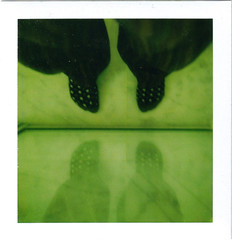 Image by K. W. Sanders via Flickr
Image by K. W. Sanders via Flickr
President's Column: Andra Bennett, APR
Green's my favorite color. Huge green elephant ears gently sway in the breeze outside my home office window as I write this, bringing peace to my work.
My affection toward green extends to the ink on U.S. currency. Having that kind of green brings peace of mind, too.
Can those two greens live in harmony? As environmentally-friendly “green” initiatives have come upon the PR scene, how do we implement programs and campaigns that are relevant to our customer and measure the return to our company / client?
Find out at our next PRSA luncheon Oct. 14 as our panel shares how the public and private sectors are working to steward our precious environment, communicate these efforts to the public, and bring a positive return to a company. Panel members are:
Brian Boerner, director of environmental management, City of Fort Worth
Tom Burke, APR, manager of public relations and communications, IBM
Chris Smith, Texas media director, Environmental Defense Fund
Giving away some green...
We’ll also be handing out some green. The Greater Fort Worth Chapter has established scholarship funds for outstanding PRSSA students at ACU, TCU and UTA. A student from each university is selected to receive $500 each and will receive their check at the October luncheon. The students are:
ACU - Will Moore
TCU - Katie Pool
UTA - Kathelin Buxton
Finally, congratulations to Diane Rhodes Bergman, APR, for achieving her accreditation status from National PRSA. Diane will receive her APR pin and $100 from the Chapter’s Jim Blackmore APR Memorial Scholarship Fund. The fund was established last year in memory of Blackmore’s PRSA legacy in Dallas-Fort Worth, and is awarded to GFW members who achieve accreditation.
Chapter members, your annual dues fund these important local awards that elevate the status of our profession and help support fellow members and students. Please join us in October at our annual meeting for the luncheon program, presentations and elections. Your participation is appreciated.
![Reblog this post [with Zemanta]](http://img.zemanta.com/reblog_e.png?x-id=e500f289-e759-48d3-b24e-f952026ce3d4)

![Reblog this post [with Zemanta]](http://img.zemanta.com/reblog_e.png?x-id=eddfef9a-0d91-440b-a3c5-1164a34c23f6)

![Reblog this post [with Zemanta]](http://img.zemanta.com/reblog_e.png?x-id=99563c2b-3c1b-48c7-b08c-a1522f666443)

![Reblog this post [with Zemanta]](http://img.zemanta.com/reblog_e.png?x-id=cde0dd8c-0902-44a6-b6c2-c420191214ef)